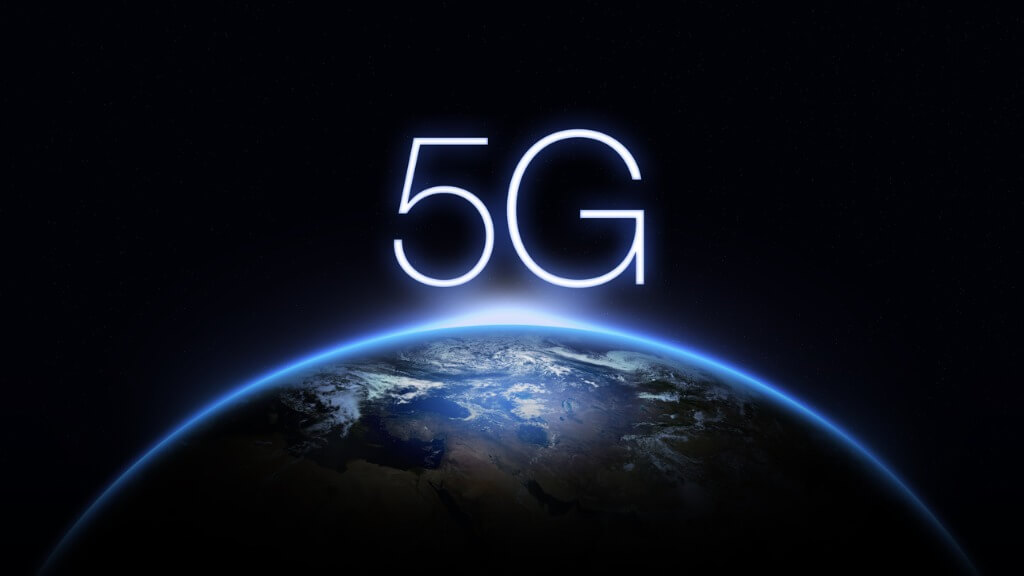One of 2019’s hotly contested topics, the UK 5G rollout will no doubt continue to dominate this year’s news agenda.
5G: The Next Generation
One of 2019’s hotly contested topics, the UK 5G rollout will no doubt continue to dominate this year’s news agenda.

An introduction which is poised to revolutionise the use of technology, 5G is the newest generation of wireless network, which operates faster and more securely than its predecessors and will supercharge connectivity and automation.
5G offers a distinct infrastructure for data sharing, driving UK businesses and the economy forward with its increased network capacity: from lower latency to quicker download and upload speeds.
Nearly all of the UK’s major mobile network providers have launched their “next-generation” technologies. This will eventually connect as many as one million devices per square kilometre.
Economic shift
5G is a much longer-term technology than its predecessors and its development will have an ongoing positive impact on UK businesses and the economy from behind the scenes.
A report published by Barclays in 2019 revealed that the introduction of a 5G mobile telecommunications network could increase annual UK business revenues by up to £15.7bn by 2025.
Existing technologies will improve thanks to the increased speed, integration and network capacity of 5G and result in the creation of new jobs, more flexible working and ultimately, an overall increase in productivity.
This shift won’t only be witnessed inside the office: the introduction of smart and automated transport will mean significantly less time wasted commuting. For those using this more effective transportation, integrated connectivity on public transport will enable employees more efficiently during out-of-office travel.
Industry transformation
We’ve already seen the impact of 5G in certain industries – for example Nokia has deployed wireless robots in their factory that run off a 5G network to produce equipment to build more 5G networks.
Moving into the next decade, we’ll see similar developments across a range of sectors – for example, the automotive and hospitality industries to name a few.
We’ve already witnessed the evolution of the motoring sector – in April 2019, O2 announced that it would test driverless vehicles on roads across London using 5G, which allows data to be sent between devices almost instantaneously.
The positive effects of 5G could also reach the electric vehicle industry, where the full benefits of its low latency will become apparent. Processing speeds are much faster, allowing drivers to remotely access battery levels and search for charging stations – resulting in lower congestion levels and stress-free journeys for all involved.
As large-scale adoption of 5G takes place, we’re likely to witness the creation of smart-city infrastructure. Thanks to the integrated network, faster and more reliable traffic updates will help to plan efficient routes for vehicles whilst reducing traffic and air pollution.
5G will also offer hospitality operators an opportunity to differentiate from competitors. Early adopters will be able to maximise their advantage through data analysis and trialling the use of 5G across a variety of products and services, such as artificial and virtual reality.
AR could provide guests with the ability to select rooms before arrival, while VR could transport them right inside the room with the option to configure according to personal preference. 5G offers the opportunity to take guest experience to the next level.
Overcoming the hurdle
While the opportunities promised by the 5G rollout are set to revolutionise the UK’s businesses and economy, its implementation has been much slower than initially anticipated.
It was recently announced UK network provider Three has delayed its 5G rollout, despite hoping to launch it by the end of 2019, due to planning permission restrictions. While EE has continued to switch on its network in major cities across the country, its current target for widespread national coverage is 2022.
In the rush to establish itself as a world leader in the use of 5G, the UK has found itself at the centre of controversy. Most recently, Boris Johnson has debated whether Huawei should be allowed to invest in the UK’s 5G network, due to the risk of jeopardising national security or diplomatic relationships with other Five Eyes countries.
Incidentally, Freedom of Information data has recently revealed the majority of London’s boroughs have no specific strategy for the capital’s 5G rollout.
Not one has allocated any budget to implement 5G this year and most of the boroughs have neglected to employ staff to enable the network’s implementation. What’s more, none of the boroughs could confirm an anticipated date for widespread coverage in its area.
The government has granted telecoms operators enhanced rights to establish infrastructure to support the 5G rollout, however its execution seems to have lost significant traction.
Before legislation changed, landowners could generate a substantial income from renting out locations where strong wireless connectivity was present.
Telecoms providers have since attempted to claim this pre-owned land in order to erect new antennas or harness existing ones, which has led to confrontation and an ultimate deceleration of commercial activity.
What’s next?
The introduction of 5G has the potential to transform numerous industries. In offering a longer-term technological solution, the newest network is geared towards enterprise and public infrastructure and is set to have a positive impact on the UK’s economy.
Nevertheless, its implementation is happening much more slowly than originally forecast and the networks will need to invest a lot more money in infrastructure before the revolution can take place.
Thousands of new antennas will need to be installed in various locations – from lampposts to bus shelters, in addition to the rooftop masts already erected.
These kinks will need to be ironed out quickly to encourage productivity and acceleration of the rollout to maintain the UK’s position as a global frontrunner in the race towards widespread 5G coverage, which will ultimately revolutionise our use of technology.
About Peter Gbedemah
Peter Gbedemah is a computer scientist and telecoms entrepreneur with a wealth of experience he now uses to support burgeoning tech companies.
Peter founded African telecoms business, Gateway Communications, at the height of the nineties Dot Com boom, which laid the framework for much of Africa’s communications infrastructure. Gateway was subsequently bought by Vodacom (a subsidiary of Vodafone) for $700m.
Thanks for signing up to Minutehack alerts.
Brilliant editorials heading your way soon.
Okay, Thanks!
